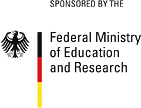Gabriele Neußer
Freie Universität Berlin
desiguALdades.net
desiguALdades.net: Doctoral Researcher (01/07/2011 - 31/01/2012)
14195 Berlin, Germany
Office hours
Academic Career
| since 07/2011 | Doctoral Researcher desiguALdades.net, Berlin, Germany |
| 04/ 2003- 12/2009 | Studies of Political Science and Latin American Studies (Diploma), University of Hamburg, Germany |
| 08/2004- 04/2005 | Studies of Political Science, University of Salamanca, Spain |
From Petrostate to „Buen Vivir“? Natural Resources, Distribution and Political Regulation in Ecuador’s New Left
Since 2007 Ecuador has a so called new-left government that proclaimed the “re-foundation” of the state. In 2008 the Ecuadorians approved a new constitution which established the base for profound changes to the country’s political, economic and social order. In this context, natural resource policies constitute a key area of political debate and political reform: Since the 1970s exportation of crude oil is the most important source of the country’s income; oil revenues account for up to 40 percent to the budget of the central government. Due to their importance for the national economy, oil production, commercialization, and revenues are subject to multifaceted conflicts on different levels: there are conflicts about unequal distribution of oil income between trans-national companies, the central government, sub-national entities and different political and social groups. Additionally, conflicts arise because of unequal distribution of resource production costs in terms of social and ecological risks/damages, especially on a local level. In the new political context oil-led development continues to be related to very diverse claims on different levels and by different actors within the country.
This research project studies the impact of global economic entanglements, focussing on oil-led-development, on the political re-foundation process of the country. From a power-analytical perspective, it analyzes the ongoing negotiation processes on natural resource politics, distribution of revenues and political regulation. Central questions to be addressed are the following: In which arenas these subjects of distribution and regulation are negotiated? Who are the actors involved and what are the power resources at their disposal? Exploring the impact of transregional interdependencies on the negotiation processes between different levels and actors within the country the study also aims at contributing to the critical debate on “methodological nationalism”.
Publications:
2011 (with Annegret Mähler and Almut Schilling-Vacaflor), Schwarzes Gold und grüne Ambitionen: Ressourcenpolitik in den Andenländern, GIGA Focus Lateinamerika, No. 5/2011, Hamburg: GIGA.
